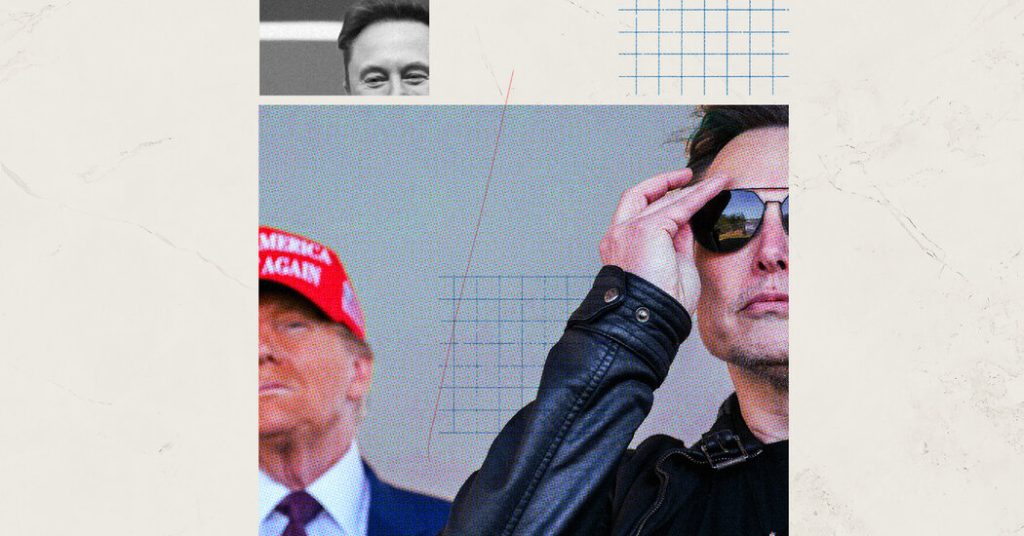This conversation analyzes the burgeoning relationship between Elon Musk and Donald Trump, exploring its implications for the political landscape and American society. The discussion revolves around the convergence of immense wealth and political power, with Musk, the world’s richest man, becoming a key figure in Trump’s orbit. This dynamic raises concerns about an emerging oligarchy where financial influence dictates political decisions, potentially leading to policies that favor the wealthy while marginalizing the needs of the general public. The participants debate the potential benefits and risks of this alliance, highlighting the inherent tension between economic growth and equitable distribution of its benefits. They also question the motivations driving Musk’s involvement with Trump, speculating on the degree to which self-interest plays a role.
Musk’s appointment to a governmental role further complicates the situation. His unorthodox behavior, including a controversial gesture at a rally that some interpreted as a Nazi salute, sparks discussion about the appropriateness of his conduct and his fitness for public service. The conversation touches on the potential for conflict between Musk’s commitment to electric vehicles, a cornerstone of his business empire, and Trump’s open embrace of fossil fuels. This discrepancy underscores the potential for friction within their alliance as their differing priorities clash. Furthermore, Musk’s past support for Obama contrasts sharply with his current alignment with Trump, raising questions about his political ideology and the consistency of his beliefs.
The discussion probes deeper into the psychological and behavioral similarities between Trump and Musk. Both men are characterized as possessing an alpha-male mentality, a craving for attention, and a disregard for conventional norms. This shared temperament could lead to either a productive partnership or a volatile power struggle. The participants also speculate on the potential for a rupture in their relationship, considering the volatile personalities involved and the potential for conflicting interests. The conversation explores the broader political context, considering how the Democratic party might respond to this new power dynamic and whether they might embrace their own oligarchs in response.
The impact of the COVID-19 pandemic on American politics also emerges as a key theme. The lockdowns and restrictions imposed during the early stages of the pandemic are seen as contributing factors to the rise of anti-establishment sentiment, propelling voters towards figures like Trump and Musk who challenged the prevailing narrative. The resulting distrust in institutions and the perceived threat to free speech are viewed as creating fertile ground for their brand of populism. The conversation also touches on the irony of Musk, who benefited from government policies and subsidies in building his electric vehicle empire, now advocating for government efficiency and deregulation.
The participants delve into the potential consequences of the “Department of Government Efficiency,” an initiative spearheaded by Musk, questioning its true purpose and whether it will genuinely address governmental inefficiencies or primarily serve Musk’s own interests. The conversation raises concerns about the potential for corruption and favoritism within this initiative, emphasizing the importance of humility and respect for institutions in government service, qualities that both Trump and Musk are perceived to lack. The discussion highlights the potential for conflict between Musk’s self-interest and the broader good, particularly concerning his evolving stance on fossil fuels in light of his growing involvement in the energy-intensive field of artificial intelligence.
The conversation concludes with a lighter segment, drawing playful comparisons between the Trump-Musk duo and famous Hollywood pairings. The participants offer differing opinions on who would have prevailed in a hypothetical cage match between Musk and Mark Zuckerberg. They also speculate on the level of envy Jeff Bezos might harbor towards Musk, considering their rivalry in the space exploration arena. Finally, the discussion ends on a whimsical note, with each participant sharing their hypothetical choice of planet for interplanetary relocation.
This wide-ranging discussion provides a multifaceted analysis of the complex relationship between Elon Musk and Donald Trump. It explores the potential implications of their alliance for American politics, the economy, and society as a whole. The conversation raises crucial questions about the intersection of wealth and power, the role of ideology in political decision-making, and the impact of disruptive events like the COVID-19 pandemic on the political landscape. It also offers insights into the personalities and motivations of these two influential figures, shedding light on their potential for both collaboration and conflict. The discussion serves as a valuable platform for examining the evolving dynamics of power and influence in the 21st century. It encourages critical reflection on the potential consequences of unchecked wealth and power and its ability to mould the trajectory of political discourse.







